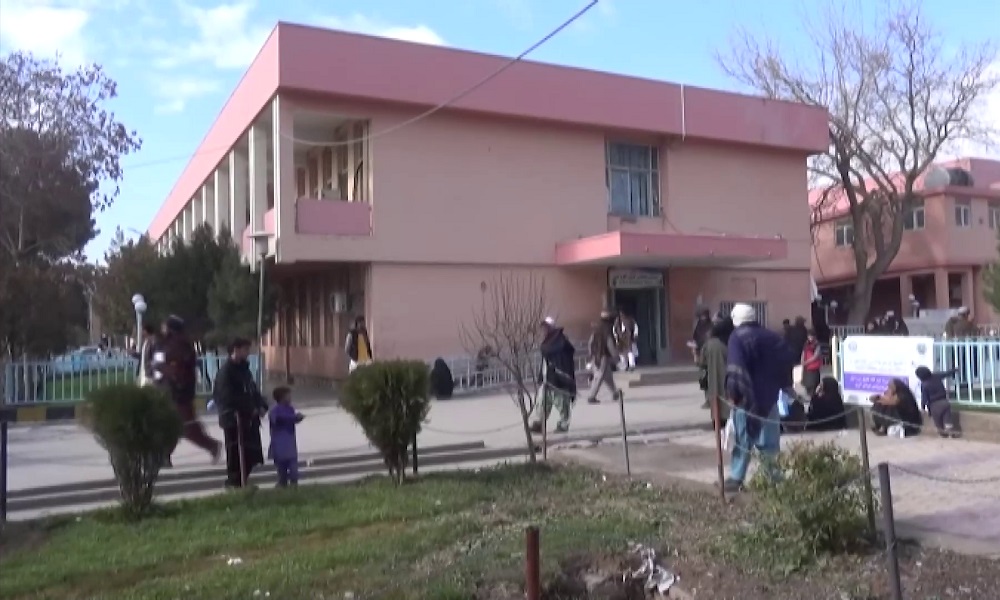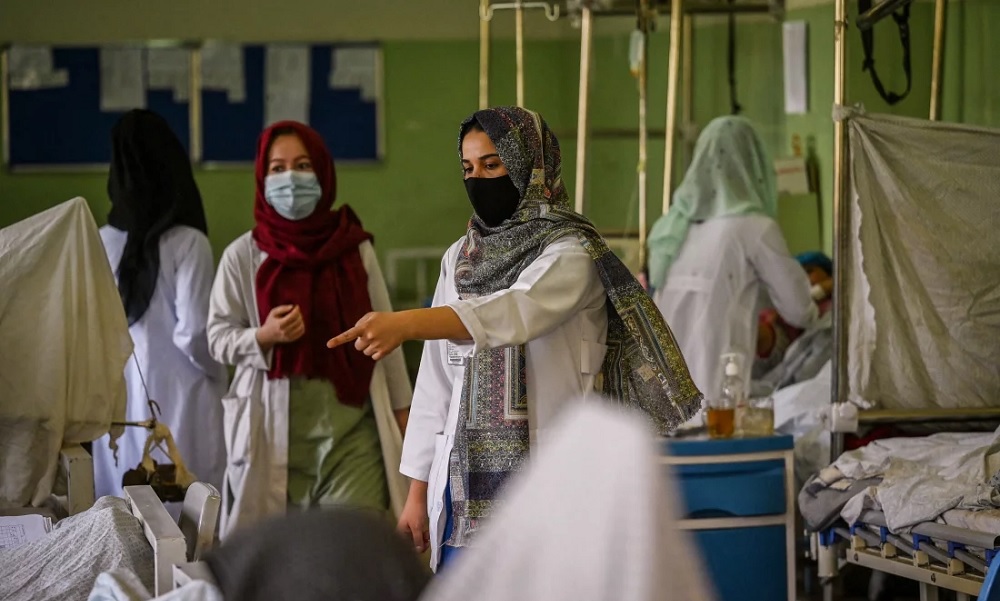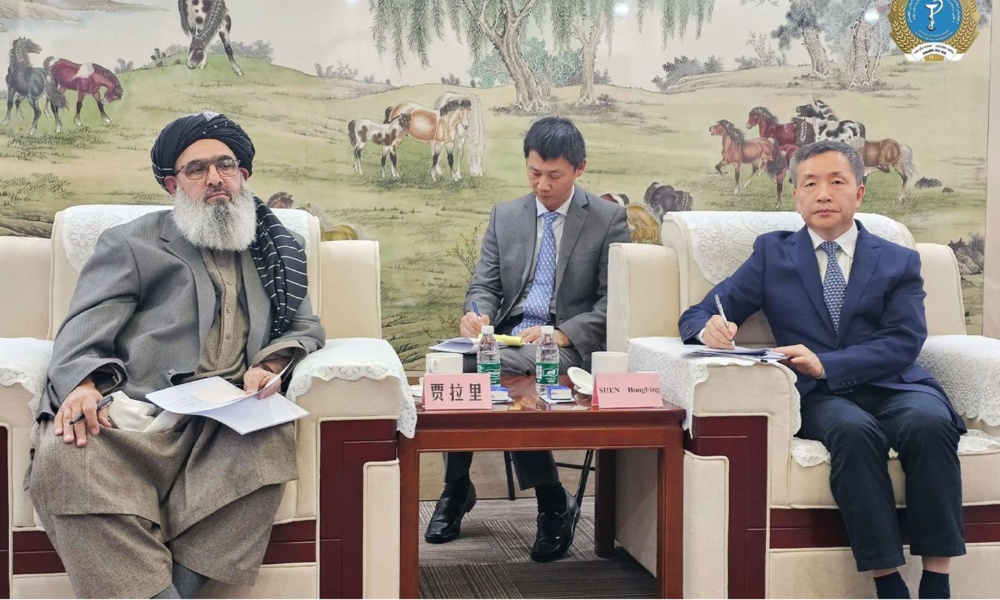Health
U.S. identifies 109 cases of severe hepatitis, including 5 deaths, in children

U.S. health officials on Friday said they are investigating 109 cases of severe hepatitis of unknown origin in children, including five reported deaths, updating a nationwide alert issued in April for doctors to be on the lookout for such cases of the liver disease.
The cases have been identified over the past seven months in 25 states and territories, Dr. Jay Butler, deputy director for infectious diseases at the U.S. Centers for Disease Control and Prevention (CDC), said during a conference call.
Fourteen of the children required liver transplants.
Butler said around half of the 109 children diagnosed with hepatitis were also infected with a type of adenovirus, a virus that causes the common cold, but the agency is still investigating the exact cause of the illness.
Hepatitis linked to this type of adenovirus has almost exclusively been associated with immunocompromised children, but many of the cases first reported to the CDC did not have immunocompromising conditions, Butler said.
He said the "vast majority" of the identified children were not eligible for COVID vaccination, which "appears to be unrelated to these cases."
The CDC is investigating whether COVID infection may be playing a role, as well as exposure to other pathogens, medications and animals.
Compared to pre-pandemic rates, the agency said it has not seen an overall increase in the incidence of severe hepatitis in children, which remains rare.
The update follows investigations in the United States and Europe of clusters of hepatitis in young children.
The World Health Organization earlier this week said it had received reports of at least 228 probable cases from 20 countries with over 50 additional cases under investigation.
The CDC said it is working with counterparts in Europe to understand the cause of the infections that can cause liver damage and lead to liver failure.
Health
Herat Regional Hospital struggling to deal with heavy patient load

Herat Regional Hospital has a capacity to treat about 1,000 patients a day, 650 as in-patients. However, the hospital is being stretched to its limits and is treating more than double this number of people every day, hospital officials say.
Officials say that in most wards, there are two patients per bed. They say the hospital needs to expand - that they urgently need more space and more equipment.
According to doctors, the High Care Unit has only 10 beds, when it actually needs at least 65. In addition, they say the dialysis department is only running at half-mast. It has 17 dialysis machines, but only eight are in working order.
Herat residents have also raised concern over the state of the hospital and said some departments, especially the dialysis unit and pediatrics urgently need equipment and additional space.
Afghanistan is grappling with significant health challenges marked by a fragile healthcare system and unequal access to services, particularly in rural areas.
This is due to a number of issues such as transportation difficulties, shortage of healthcare professionals, and limited access to quality healthcare services.
Despite efforts to improve the country’s healthcare infrastructure, Afghanistan continues to grapple with systemic issues that hinder effective healthcare delivery. Analysis by UN agencies of under-served areas shows that 13.2 million people in 34 provinces reside in areas where primary healthcare services are not accessible within a one-hour walking distance.
Health
Excluding Afghan women from medical institutes threatens the future of health care in the country: MSF

The Islamic Emirate of Afghanistan’s (IEA) decision to bar women from studying in medical institutes will have far-reaching consequences for women’s health in the country, Médecins Sans Frontières (Doctors Without Borders) said on Friday.
This is another stage in the removal of women from public and professional life in Afghanistan. Already, there is an insufficient number of female health care workers in the country, impacting the availability of health care, especially given the separation of hospital wards by gender. New constraints will further restrict access to quality health care and pose serious dangers to its availability in the future, MSF said in a statement.
“There is no health care system without educated female health practitioners,” said Mickael Le Paih, MSF’s country representative in Afghanistan. “At MSF, more than 50 percent of our medical staff are women. The decision to bar women from studying at medical institutes will further exclude them from both education and the impartial provision of health care.”
The medical needs in Afghanistan are huge, and more female Afghan medical staff need to be trained to address them. For this to happen, women need to have access to education. Education restrictions for women and girls put in place in 2024, 2022, and 2021 considerably reduce the number of female medical staff in the future, MSF said.
“If no girls can attend secondary school, and no women can attend university or medical institutes, where will the female health professionals of the future come from and who will attend to Afghan women when they are at their most vulnerable?” said Le Paih. “For essential services to be available to all genders, they must be delivered by all genders.”
Recently, there have been reports that the leader of the Islamic Emirate has ordered the closure of medical institutes to women. The Islamic Emirate has not yet officially commented on this matter.
Health
Afghanistan’s health minister visits disease control center during China visit
Jalali, in China for the World Conference on Traditional Medicine 2024, said that traditional medicine in Afghanistan needs to be regulated and integrated into modern healthcare practices

Afghanistan’s Acting Minister of Public Health has held in depth discussions on managing diseases such as malaria, tuberculosis, and polio with China’s Deputy Director for Disease Control and Prevention, Shen Hongbing.
On an official visit to China, Mawlawi Noor Jalal Jalali also discussed other issues, with Shen and other officials, such as monitoring of diseases, disaster management processes and capacity building for Afghan healthcare workers.
Jalali, who was in China for the World Conference on Traditional Medicine 2024, also toured China’s Disease Control and Prevention Center (CDC) and its National Influenza Center.
The conference, which was held on Tuesday and Wednesday in Beijing, was jointly held by the World Health Organization (WHO) and Chinese sponsors, including China’s National Health Commission.
The opening ceremony of the two-day event was attended by health officials of governments and international organizations, experts and scholars, and deputies from medical institutions.
WHO Director-General Tedros Adhanom Ghebreyesus gave a speech via video.
Addressing delegates at the conference, the ministry cited Jalali as having said that traditional medicine in Afghanistan needs to be regulated and integrated into modern healthcare practices.
He also advocated for strengthened bilateral cooperation between China and Afghanistan to enhance capacity building, experience sharing, and joint research in the sector.
Afghanistan’s health ministry has meanwhile established a Traditional Medicine Department which is currently tasked with formulating policies and guidelines to regulate and improve this sector.
-

 Sport5 days ago
Sport5 days agoZimbabwe’s opening ODI against Afghanistan abandoned
-

 World4 days ago
World4 days agoNorth Korean troops suffer 100 deaths, struggling in drone warfare, South Korea says
-

 Latest News2 days ago
Latest News2 days agoAfghan men must stand with women to support viable future of country: US envoy
-

 Latest News4 days ago
Latest News4 days agoTwo horror accidents on Kabul-Kandahar highway leave 52 dead
-

 Sport3 days ago
Sport3 days agoAfghanistan crush Zimbabwe by 232 runs in second ODI
-

 Regional5 days ago
Regional5 days agoIran’s president to make rare visit to Egypt for D-8 summit
-

 International Sports4 days ago
International Sports4 days agoLanka T10: Kandy Bolts in at 4th spot in playoffs after thrilling day
-

 World5 days ago
World5 days agoNATO takes over coordination of military aid to Kyiv from US, source says
























